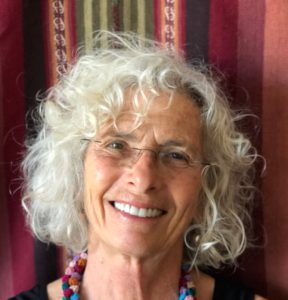Innovator in improving child welfare system policy and practice with data-driven research

Barbara Needell was ahead of her time both in understanding the power of data for evaluating social work practices and in carefully but rigorously teaching government and academic leaders how to harness this powerful tool to improve the well-being of children and families.
Known for her motto “Data are your friends,” Needell made California a leader in opening child-welfare data to the world and using it for evidence-based reforms. Colleagues note that she “invested deeply in understanding every possible indicator” of child welfare as she “sometimes criticized and oftentimes helped the federal government develop performance measures.”
A Mills College graduate with honors in psychology, she earned an MSW and PhD with distinction in social welfare at the University of California at Berkeley. From 1995 to 2015 she was principal investigator for UCB’s California Child Welfare Indicators Project, guiding the use of outcomes data to improve services for vulnerable children. CCWIP data have informed such laws as the federal Adoption and Safe Families Act of 1997, California foster care policies, statewide assessments, and foundation reviews. In fact, Needell’s skill in forging partnerships across state and county offices, higher education and private agencies helped create California’s Child Welfare Outcomes and Accountability System in response to a 2001 federal Child and Family Services review that mandated improvements. In not only promoting data-based assessments but also instructing users how to avoid common biases in standard-setting and statistical fallacies in analysis, she persuaded many government, foundation, and other leaders to adopt fair, objective, and rigorous longitudinal tracking methods. Because of Needell’s leadership and guidance in this technical innovation, a former county child-welfare director recounts that her office “was able, for the first time, to structure and monitor programs and services to support abused and neglected children and to help repair their fractured families.”
Needell has shared her Children’s Archive data widely, consulted with other states’ child welfare offices regarding their public-private collaborations, and offered in-service trainings for professionals across the nation. Curricula in various MSW research methods courses have incorporated her CCWIP performance measures. She has also applied her expertise by chairing the data linkage and information sharing committee of California’s Child Welfare Council, testifying before legislators, authoring articles and book chapters on her research, and serving on a wide array of panels and commissions. Calling her “a marvelous influence for positive change,” a colleague declares, “The field of child welfare is truly indebted to her.”
For her extraordinary vision and passion to innovate, Needell has received numerous honors, including accolades from the National Association of Public Child Welfare Administrators, as well as the Peter H. Forsythe Award for Leadership in Public Child Welfare.